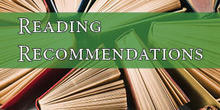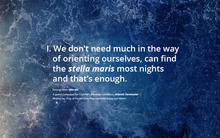Two poems by Antony Di Nardo
Today we present two poems by Antony Di Nardo, one of the contributors to Brian Bartlett's section from our 75th anniversary issue. Brian selected poets who didn't publish their first collections until the age of fifty or later and who provided a prose reflection in the issue itself. After you read Antony's poems, be sure to check out the issue, or buy it now.












